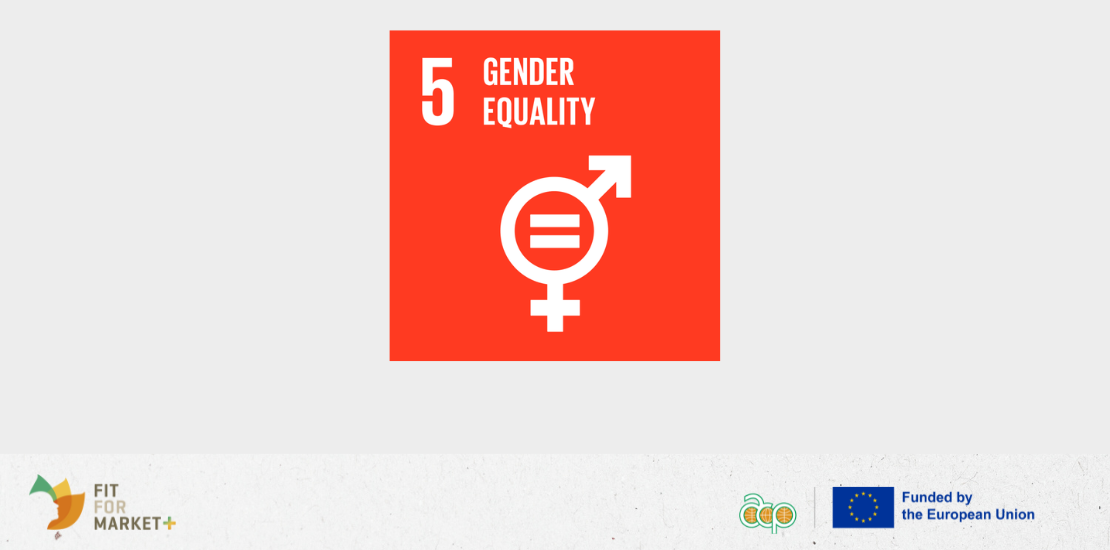- 06/05/2025
- Posted by: Sandra Borma
- Category: News

Gender equality is central to sustainable development and a key pillar of COLEAD’s mission. Particularly in the African, Caribbean and Pacific countries where the organisation works through the FFM+ programme, women play a crucial role in agriculture and the rural economy. However, they face many barriers to their economic participation. COLEAD is committed to removing these barriers and promoting women’s economic empowerment as a lever for inclusive and sustainable growth.
A gender mainstreaming strategy at all levels
COLEAD’s Gender Action Plan provides a structured framework for achieving this goal. It is based on four key areas:
Ensuring equitable participation of women and men in agricultural value chains.
- Strengthening the capacity of women entrepreneurs and agricultural producers to access sustainable economic opportunities.
- Facilitating women’s access to markets, finance and support services for economic empowerment.
- Systematically integrate a gender perspective into assessments, training and technical interventions to ensure that they meet the different needs of women and men.
This action plan is part of the broader Sustainable Development Goals (SDGs), which aim to build inclusive and resilient agricultural systems.
Training of trainers to strengthen local capacity
From 27 March to 25 April, COLEAD organised a training of trainers on gender mainstreaming as part of FFM+ programme. The training brought together 19 participants from 11 countries in Africa and the Caribbean, all involved in promoting gender equality in the agri-food sector.
The session, facilitated by Antonia Caramba-Coker and Kerry Kyd (gender experts) with pedagogical support from Ernest Muzukutwa, aimed to equip participants with technical and pedagogical skills to design, facilitate and evaluate gender training in line with COLEAD’s Gender Strategy 2024-2027.
Feedback highlighted the practical and directly applicable nature of the training, which was seen as a lever for changing professional practices in the countries represented.
A structuring tool to support change
COLEAD’s Sustainability Self-Assessment System complements this approach. It provides a framework for agribusinesses to make progress in integrating best practices – including gender equality – into their management. By answering simple questions, operators can progressively improve their performance, meet market demands and demonstrate compliance with expected standards.
By implementing its gender strategy plan through concrete actions such as training of trainers, COLEAD confirms its commitment to working towards a more inclusive, equitable and sustainable agriculture. Thanks to the support of the FFM+ programme, skills are disseminated at the local level for greater impact on the ground.
This activity is supported by the Fit For Market Plus (FFM+) programme, implemented by COLEAD within the Framework of Development Cooperation between the Organisation of African, Caribbean and Pacific States (OACPS) and the European Union. This publication receives financial support from the European Union and the OACPS. The content of this publication is the sole responsibility of COLEAD and can in no way be taken to reflect the views of the European Union or the OACPS.





